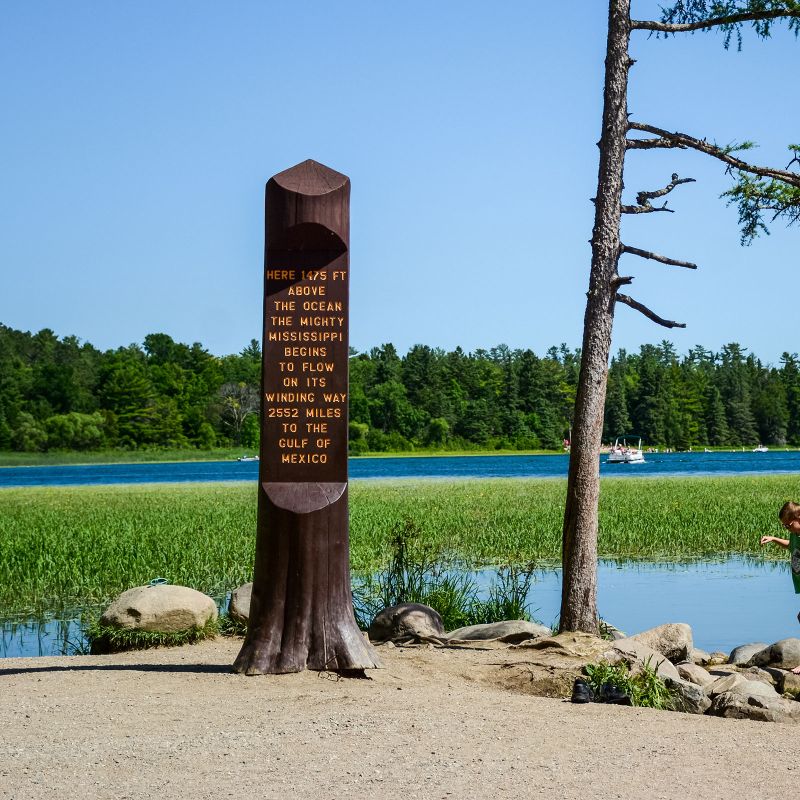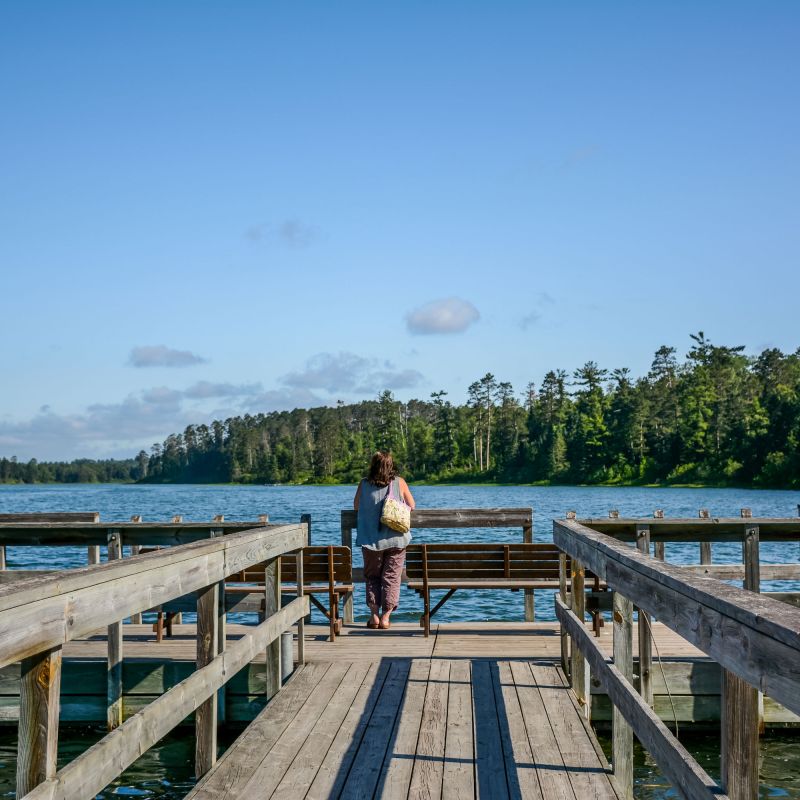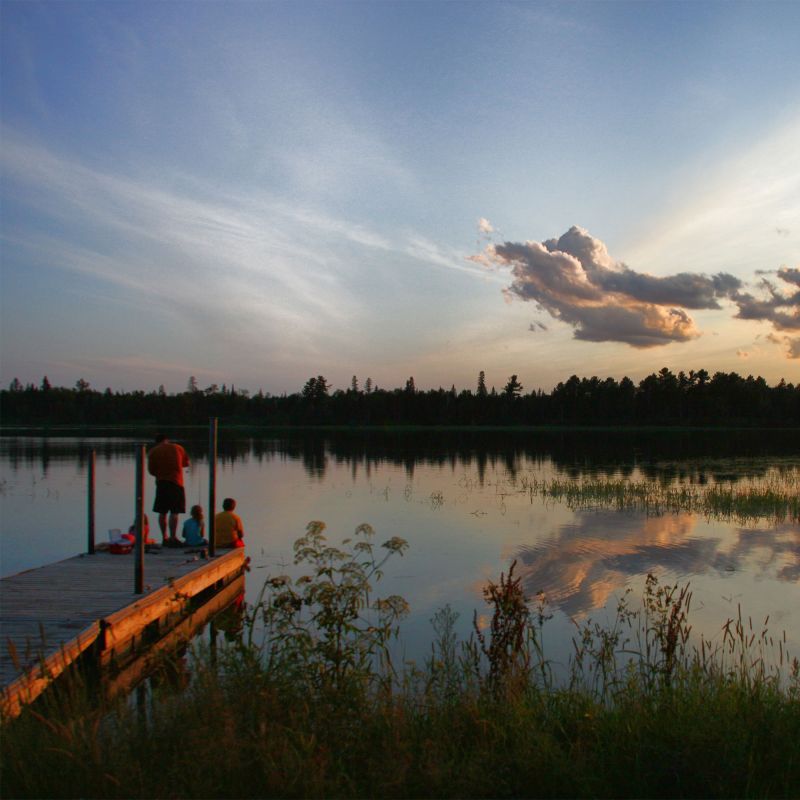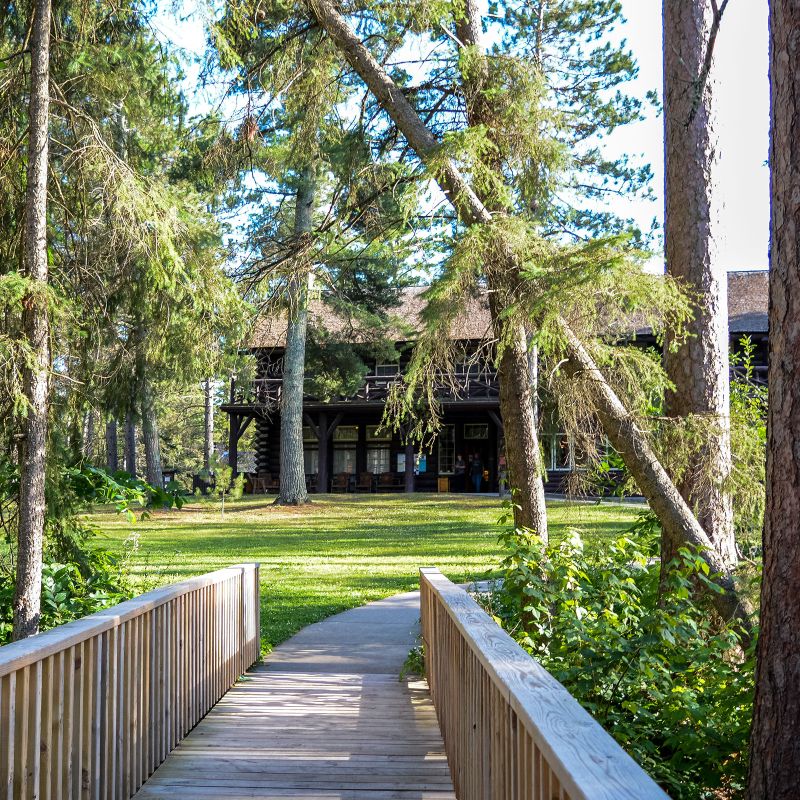
Journey to the Mississippi Headwaters at Itasca State Park
Journey to the Mississippi Headwaters at Itasca State Park
By Lisa Meyers McClintick
People from around the world come to Itasca State Park in northwest Minnesota to marvel at the serene birthplace of the mighty Mississippi River. They pose next to a large pine log carved with yellow letters that marks the beginning of the great river’s 2,552-mile route across America, from Minnesota's north woods to the Gulf of Mexico.
Since the days of Native Americans exploring the region to the pageantry of the steamboat era, the story of the "Father of Waters" is fascinating, and it all begins in Minnesota. According to legend, those who step across the Mississippi at its source will live a long and happy life, and great riches will come to whoever finds the mythical Cities of Gold along its banks.
Visitors of all ages carefully hop rock to rock across the spot where Lake Itasca flows into the river’s humble beginning. On hot summer days, children and hikers seeking a cooling reprieve wade into the gentle waters beneath the shade of fragrant pines that have towered like sentries for hundreds of years.

Kids crossing the Mississippi Headwaters at Itasca State Park
Things to Do at Itasca State Park
The Mary Gibbs Visitor Center, adjacent to the headwaters, features exhibits on the river’s history and cultural importance. Minnesota has more miles of the Mississippi than any other state, including the river’s most wild and scenic stretches as it flows north to Bemidji and east through several large lakes and the Chippewa National Forest.
Itasca also stands out as Minnesota’s oldest state park (established in 1891), one of its largest at 32,000 acres, and among its grandest thanks to a variety of lodging that’s rich in historic character and similar in style to national park lodges built in the early 1900s. The park offers more than 220 campsites, plus cabins, suites, rooms at historic Douglas Lodge, and even a hostel in the 1922 former park headquarters.
Get your bearings and enjoy hands-on exhibits on loons, forest fires, logging and wildlife at the Brower Visitor Center. The scenic, 10-mile Wilderness Drive circles through the park. For an eagle’s-eye view of the majestic forest, brave the climb up the Aiton Heights observation tower.

Where the Mississippi River begins

Relax and recharge in the tranquil simplicity of Itasca State Park

Family fishing at Itasca State Park / Christy Bruggenthies

The Douglas Lodge at Itasca State Park is one of the many places to stay near Bemidji

Crossing the Mississippi Headwaters at Itasca State Park is a tradition for many in the Park Rapids area / Democratic Travelers
Narrated boat excursions explore Lake Itasca, sharing natural history lessons and pointing out wildlife such as bald eagles that soar above the water. You can rent a kayak or canoe to paddle on the lake or bikes to pedal along the 6-mile trail to the headwaters. Hikers can trek more than 28 miles of trails around quiet lakes, bogs and into forests that chatter with birds and squirrels, and sightings can include otter, mink and deer. Another highlight is peaceful Preacher’s Grove, with its canopy of tall pines.
During the summer, the “Music under the Pines” series of weekend concerts features an eclectic lineup. For kids, an array of naturalist programs covers fun topics from animal tracks to fish painting. Itasca is also popular for its beautiful fall colors and, in the winter, for its cross-country ski trails.

The charming shops of downtown Bemidji / Lisa Meyers McClintick
Other Sites Along the Great River
Besides preserving the Mississippi’s birthplace, Itasca State Park anchors the headwaters region that includes the 88-mile Lake Country Scenic Byway linking the towns of Park Rapids, Detroit Lakes and Walker. The area is ideal for classic resort cabin or camping vacations. Area towns offer plenty of motels, as well; Park Rapids is 20 miles south of Itasca State Park, and Bemidji is 30 miles to the north.
Keep following the river and you'll hit Grand Rapids, where lumberjack history comes to life; Little Falls, boyhood home of aviator Charles Lindbergh; and Minneapolis-St. Paul, the state's mecca of arts, culture and the famous Mall of America in Bloomington. The river continues south through charming small towns named after famous Indian chiefs, including Red Wing and Wabasha.
In many cities along the Mississippi, visitors can board riverboats for narrated tours, or get on the river for fishing, canoe, water ski and kayak adventures. Trails and roads along the river provide extended bicycling, hiking and scenic drives. Stop to dine at one of the many restaurants along the river, enjoying magnificent scenery with your meal.


